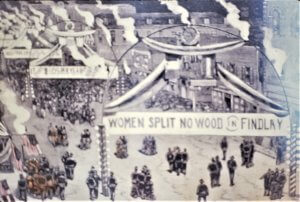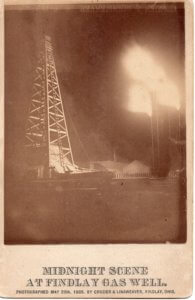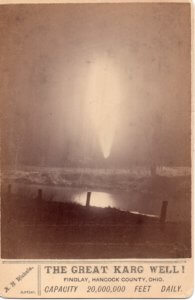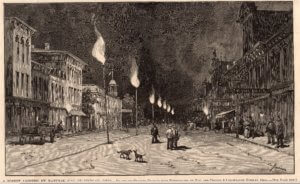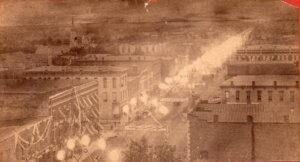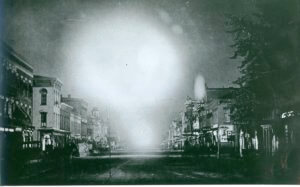Don’t miss Pat’s earlier installments exploring Findlay’s history, including the previous segment, “Discovery of Gas”.
As gas was being found on the outskirts of Findlay in 1880, there was a seemingly endless supply. Then, the Karg well was struck January 20, 1886 and there was a surplus. The well was located at the foot of Liberty Street on the south bank of the Blanchard River on the Karg Brothers property.
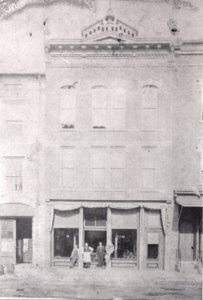
Karg Brothers Meat Market was located at 233 S. Main Street and was near where the well was discoverd
The large vein was not lighted at first for fear of burning the derrick and buildings surrounding it. The initial flow was 12 million cubic feet per day. You could hear the well up to six miles away, while 10 miles from the well, you could read a newspaper by its light. In the right conditions, the flame could be seen 40 miles away. It was unbearably hot within 100 feet and even in the coldest winter , green grass grew and the river, covered elsewhere with ice, was blue and serene. Thousands of sightseers came to view the marvel.
The gas was never turned off. Instead the street lights burned in 3 to 4 foot tall jets, day and night.
Families kept the gas running all day long. The thought was that it was cheaper to allow the gas to burn than shut down the wells. If it got too hot, even during the winter, they opened windows.
- The gas was kept on day and night, year-round
- If the flames made it too hot residents just opened the windows, even in the winter
To entice businesses to locate in Findlay, the city offered “cheap” gas. A published ad read “Free Fuel! Free Light! Free Sites! For the Manufacturers Who Will Locate in Findlay, Ohio” Banners sprung up across Main announcing the discovery of gas, “It Costs $1.05 to Keep Warm” and “Findlay, the Center of the World”. However, none indicated greater progress in labor saving for women than the one which proudly announced that: “Women Split No Wood in Findlay.”
